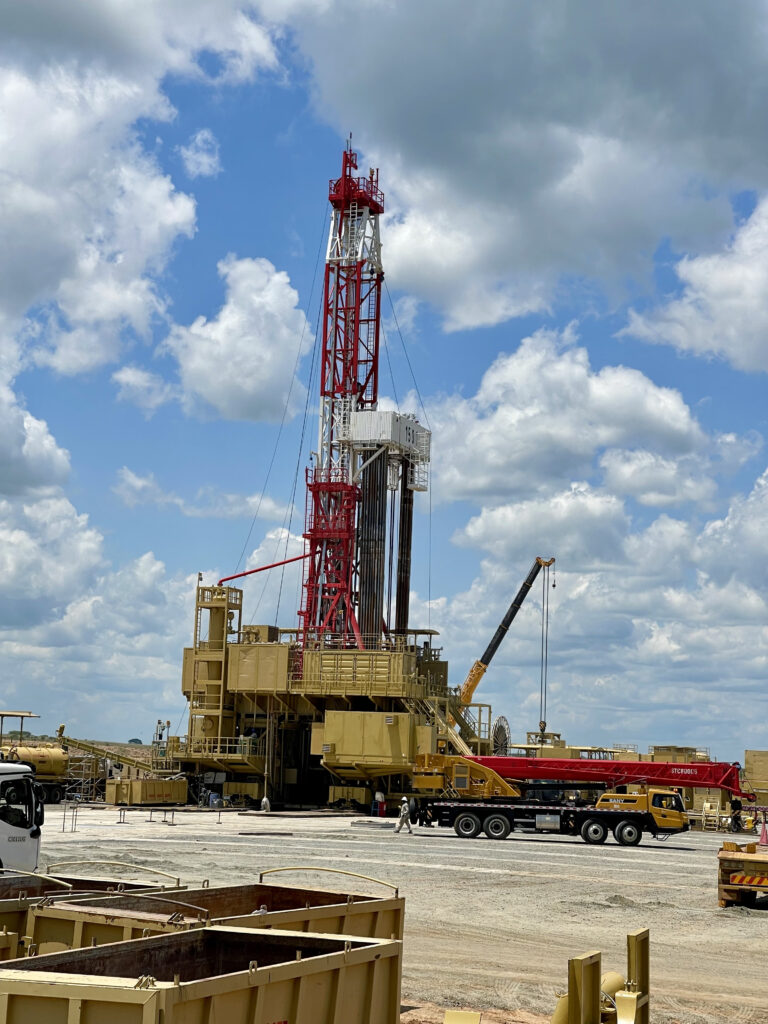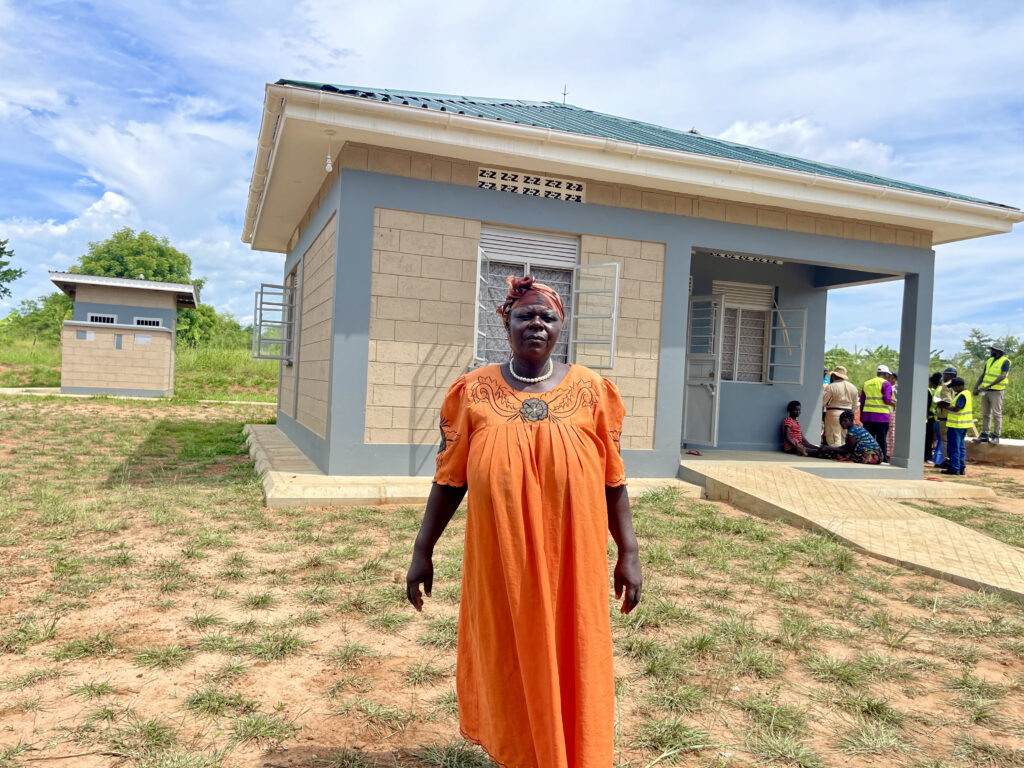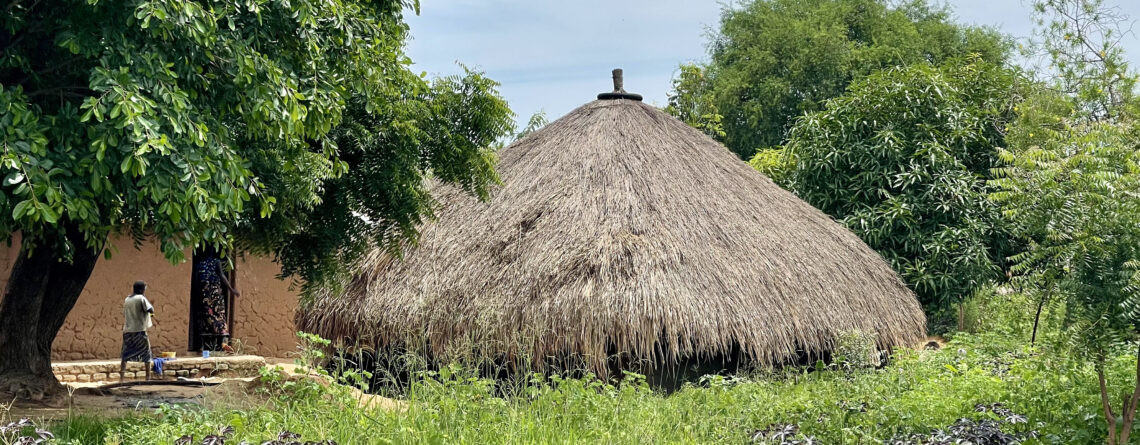Uganda’s Oil and Gas Projects Spark Women’s Land Rights Reforms, Defying Traditional Ownership Taboos.

Photo / Culton Scovia Nakamya
By Culton Scovia Nakamya
“I don’t mind what else happens; I am now contented. I won’t have to be turned away in case something happens,” Dorothy Agaba a resident of Kiryango village in Buliisa district, excitedly speaks about owning a land title alongside her husband, a privilege that has been considered undeserving for women in the region.
In Bunyoro Kitara Kingdom, western Uganda, it is a taboo for a woman to own land.
Traditionally, families believed that a girl has no inheritance rights because she will get married. Upon marriage, their husbands also believe a woman cannot own land because her family will take it. This controversy has affected women for decades, influencing domestic violence when disputes arise and displacing many upon the husband’s death.
The 1995 constitution and 1998 land act identify four tenure systems of land in Uganda. They include Leasehold, Mailo, Customary, and Freehold. The Land tenure system in Bunyoro Kitara Kingdom is communal where land is owned by a clan, giving powers to clan leaders to decide on allocations and sale.
Alice Kasangaki, the gender minister in Bunyoro Kitara Kingdom, says they have been recording many cases of domestic violence where husbands, in connivance with clan leaders, sell off family land without the consent of the woman.
“Family matters are resolved at the clan level. So as a woman, you have no right to contribute to any debate concerning land. When it comes to land rights, a woman belongs nowhere, she can’t own any piece of it,” she says.
The hierarchy is bureaucratic. From family clan head to village level, parish, subcounty, county, and then district level, these forms what is called a clan council. The Kingdom has 130 clans, and these make decisions about land.
“don’t go to police, all matters should be resolved in accordance with clan structures” says Alice Kasangaki.
Article 21 of the Constitution prohibits forms of discrimination against gender. But until 2006, when Uganda announced commercial petroleum resources in the country, there was little to no hope of dismantling this phenomenon.
The Petroleum Authority of Uganda has since put in place Land acquisition processes to facilitate the oil and gas infrastructure. This required compensation of project affected persons.
There are two flagship projects: The Tilenga project operated by Total Energies Exploration, which consists of nine onshore oilfields with 426 wells from 31 well pads, requiring 1,183 hectares of land. Second is the Kingfisher Project operated by China National Offshore Oil Company, Uganda, which requires 1,020 acres of land.
Authorities say the compensation process came with cases of domestic violence because male partners would not disclose details to their wives while others preferred to use the money to marry other women.
Dr. Joseph Kobusheshe, Director Environment, Health, and Safety at the Petroleum Authority Uganda, says the body moved to implement measures to offer a solution. Spousal consent became mandatory for registered Project affected persons to receive compensations or resettlement.
Dorothy has lived in a customary marriage with her husband, William Kabarole, for 31 years. Their home, sitting on five acres of land, was affected by the oil and petroleum pipeline works under the Tilenga Project, which required resettlement and compensation. The family was resettled 1.5 kilometers away from their home.

Dorothy says she can now smile because legally she co-owns the new property. “The title has both our names, which gives me security as a woman. I really appreciate. It is saving many fights in families,” she says.
Besides a resettlement plan including a house built by Tilenga project, Dorothy and her husband received cash compensation more than six months ago. To date, Dorothy says she doesn’t know how much the family was paid. The husband has adamantly refused to disclose the sum, claiming she doesn’t have a right to know.
“He has used the money to set up a commercial building, which has stalled because of funds. He didn’t involve me in anything concerning that cash or even consulting me before investing the money in construction. I don’t know how much he was given. Now children need school fees, but we can’t afford it.” she says.
Focusing on the bigger picture, Dorothy has chosen to ignore the cash, as long as her existence is protected by the land title.
Like Dorothy, many women in the region are celebrating such milestones, one that they have considered relieving, because it challenges the status quo as far as land rights for women are concerned.
Disputes over family property are identified as the leading cause of domestic violence in Uganda. The police crime report 2023 indicates 14,681 cases of domestic violence reported across the country. The report further reports that a total of 15,184 people were victims of domestic violence, of whom 3,243 were male adults and 10,792 female adults. The Albertine region, which covers the districts of Buliisa and Hoima, ranked fourth with 944 cases.
Dr. Kobusheshe says they have been able to manage family conflicts and drastically reduce cases of domestic violence.
“We don’t want to leave the community or families broken. The compensation process has relieved many women, and this is what we desire to see,” he says.
Alice Kasangaki has welcomed the development, expressing worry about how many women would be displaced if such policies were not implemented.
“Some men would’ve preferred to marry other women during the relocation process and abandon the ones they had. So what would happen to them? Where would they go? Jointly owning the property has saved us the shame of internal displacements,” she notes.
Following this precedent which challenges the traditional norm, Kasangaki discloses that the Kingdom has introduced a Land Equity Movement policy. Upon approval by the clan council, this will be used for civic engagements to among others, encourage parents and husbands to adopt new measures that allow women and girls to own land.
END


Leave a Reply